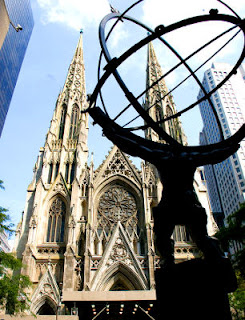Essay One: The Crisis of Culture
Chapter Two: Significance and Limits of Today's Rationalistic Culture
When entering into a study of culture, having first come to the understanding that today's advancements are not growing in tandem with morality, we must look at two questions. The first is whether rationalism is a universally valid and completely scientific philosophy? This would mean that it was strictly rational and that the reason guiding it was common to all men. The second question, then, is whether rationalism is complete in itself? This would mean that it has no use for its own history, nor would it have any use for God.
Rationalism is guided by a set of generally valid moral values. That religion cannot be imposed by the state, that freedom must be protected, and the separation of power and control of power. This is an endeavor to respect the fundamental human rights of man. Historically, religious neutrality of state is an illusion. Only technological advancement matters, and it is what drives their philosophy.
Upon this hinge, you may see that rationalism is strictly anti-metaphysical. (Metaphysics is the philosophical study of man as being, of living life awake to the unchanging being of man, even as his physicality and surroundings change. This does not mean that he cannot improve himself, rather he exists. In fact, it is a philosophy that enables man to be most fully himself and most fully alive.) In rationalism, man is the product of himself. These general moral guidelines produce men who do not accept moral authority, where only his own calculations under given proof provide the framework for life. He defines his own morality. Therefore a philosophy, which aims to respect the rights of man, diminishes them by engendering the mutilation of man.
The rationalistic view on liberty, in turn, also leads to the self-destruction of liberty based on their self-limitation of reason. (They only believe what they can personally rationalize.) Under the lens of the rationalistic vision of man and liberty one can say that it cannot be universally valid. This philosophy is incomplete as it has divided itself from its historical roots, and by that same token has taken itself away from its source. For example, if one were to ask where this philosophy came from, and what it's founded on, the answer would be that it comes from that which man could reason. But reason without orientation to a moral norm or standard becomes a power for destruction.
This detachment from its historical roots has caused it to dispense with man entirely. Spokesmen of the natural sciences even say that man has no liberty, which contradicts one of the generally valid moral values that rationalism is founded on. It is said that man is no different from any living being and ought not be treated differently, which makes it easier for men to be more interested in protecting endangered species of wild animals, rather than concerning themselves with the rights of men.
Overall, through these points one can see that rationalism is neither strictly rational or universally valid. To move forward as a philosophy it must reestablish its contact with its roots to be complete. They must see that the failure to draw from their Christian roots (of the enlightenment) is not true tolerance. This opposition engenders antagonism between the emancipation of man from God and the religious cultures of the world. The great religions have coexisted for centuries, yet rationalism is creating a culture where nothing can coexist. Cardinal Ratzinger phrases it like this, "Relativism becomes a dogmatism that believes itself in possession of the definitive knowledge of human reason with the right to consider all else as merely a stage of human history that is obsolete." (Christianity of the Crisis of Culture, Ratzinger, Cardinal Joseph, page 45.) Man is in need of his roots if he is to survive, when you lose sight for your reason for being you lose sight of your dignity.
Overall, through these points one can see that rationalism is neither strictly rational or universally valid. To move forward as a philosophy it must reestablish its contact with its roots to be complete. They must see that the failure to draw from their Christian roots (of the enlightenment) is not true tolerance. This opposition engenders antagonism between the emancipation of man from God and the religious cultures of the world. The great religions have coexisted for centuries, yet rationalism is creating a culture where nothing can coexist. Cardinal Ratzinger phrases it like this, "Relativism becomes a dogmatism that believes itself in possession of the definitive knowledge of human reason with the right to consider all else as merely a stage of human history that is obsolete." (Christianity of the Crisis of Culture, Ratzinger, Cardinal Joseph, page 45.) Man is in need of his roots if he is to survive, when you lose sight for your reason for being you lose sight of your dignity.


.jpg)



.jpg)




